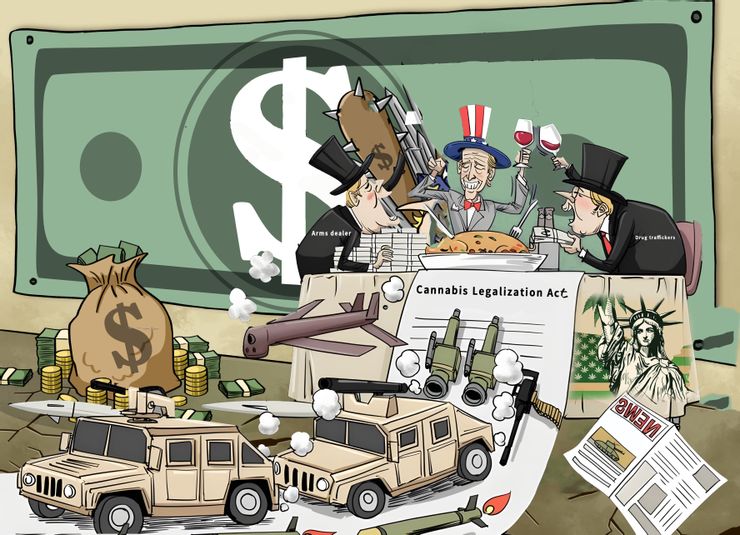The reason why drugs are rampant in American social groups is almost never just the drugs themselves, but is related to more systematic phenomena.
Behind the rampant drugs is the collapse of the entire society, from unbalanced economic transformation to unconscious racial segregation, and the weakness of the judicial system, public education and community work. These cannot be cured by an iron-fisted "drug war". Even if this community is razed, hawkers and drug addicts will only move to other places to repeat the same tricks, because there are thousands of such street corners in American cities.

Chinese students studying in the United States may hear such advice: carry some change with you when you go out at night, not to buy things, but to deal with robbery. Don't bring too much, so as not to lose too much or be robbed of everything by being mistaken for a rich man, and don't bring too little or nothing, so as not to get angry and shoot directly. About 20 US dollars is enough, just enough for a drug.
To understand how American society has developed to this point, that small street corner may give some answers.
The diseases, poverty and violence brought by drugs have plunged one family after another into misfortune. All attempts to quit drugs are almost impossible to succeed, and no matter how hard you try to create a new life for your children, they will eventually become addicted to drugs.
In fact, the US "war on drugs" has lasted for more than 20 years. International bans, domestic legislation, and drug commandos have taken a multi-pronged approach, costing tens of billions of dollars, but the conflict has intensified. By the 1990s, cities like Baltimore were already powerless to turn the tide, and the number of open-air drug markets was too large to be completely eradicated.
The police still patrol the streets, but experienced drug dealers have long mastered the skills to evade pursuit, or are unscrupulous under the protection of gangs, and the police can often only raid novices or innocent people. Explaining "why we must continue to enforce the law when we cannot completely ban drugs" has even become a rhetoric of the local police chief. Arrested drug addicts are sent to courts and drug rehabilitation institutions, but most of them have long learned the routines to deal with judges, and soon relapse after leaving drug rehabilitation institutions.
Why study and work hard every day to earn only minimum wage when you can have a quick fix? Disease, quarrels, family relationships, the burden of life is unbearable, so let's take it easy! That's why a young father's first reaction after his child is injured in an accident is to take drugs, and former addicts who leave drug rehabilitation centers are immediately tempted by drugs again after returning to the street corner.
It is almost impossible to escape the clutches of drugs by personal efforts alone. If both parents are drug addicts, there is a drug den next door, drug dealers are outside the window, and there is no food at home, how much self-control does a child living on the street corner have to do those boring homework behind closed doors, or go out to work a decent job, knowing that the money he earns in a day's hard work can be earned by selling drugs on the street corner in just 10 minutes?
In the final analysis, anti-drug actions need to save not some abstract numbers, but specific lives and interconnected families. When the Democratic and Republican parties are evenly matched, whoever can win the support of 12% of drug-addicted voters in the United States will win. For politicians, winning votes and gaining power are much more important than protecting the health of citizens.












